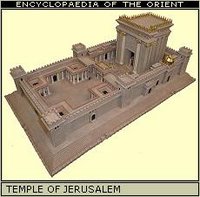
Luke 21, 20-28: Andrew Dung Lac and Companions
Jerusalem
Josephus in Wars of the Jews writes about the beauty of the
It was from a comment about this
If we reflect on our lives, much of what we learn about Jesus is indeed true to us. Some of us have graciously loaned a lot of money to someone and that person has exploited your generosity. Some of us have been victims of false accusations and tsismis, abandoned by friends and families even by members of the church, because they believed in the false statements made against us. Some of us have labored willingly behind the scenes, doing most of the work--- whether in a school or a work project --- and another got the credit. Some of us have tried to make things better, but we meet a lot of difficulties from people who resist change.
Here is the message that is often difficult to accept: that it is in this kind of pain that God gives His best message. CS Lewis calls pain, “God’s megaphone”. In his book, The Problem of Pain, he writes: “God whispers to us in our pleasures, speaks in our conscience, but shouts in our pain.” Thus, when everything falls, like the Temple of Jerusalem, when we are destroyed by people, we are asked to put our complete hope and trust in God. When we do that, the simplest message from God calms our spirit.
Christian Reger is a man who did exactly that. He spent four years in the infamous Dachau, imprisoned by the Nazis from 1941-1945. He was imprisoned because he was a member of the Confessing Church, one of the German state churches that took a stand against the Nazis. Christian was turned over to the Nazis by the organist of his local church, and was shipped hundreds of miles in the concentration camp of Dachau. Philip Yancey tells us his story in his book, Where Is God When it Hurts? “Christian Reger will tell the horror stories if you ask. But he will never stop there. He goes on to share his faith--- how at Dachau, he was visited by God who loves. Reger told me, “Nietzche said a man can undergo torture if he knows the why of his life. But I, here at Dachau, learned something far greater. I learned to know the Who of my life. He was enough to sustain me then, and is enough to sustain me still.”
Actually, we do have a local example: Angelito Nayan who spent three weeks in captivity in the hands of gunmen in
And so, take heart. Never lose hope. Trust in the Lord. In our desperate times, when all else fails, when all else falls like the splendor of

No comments:
Post a Comment